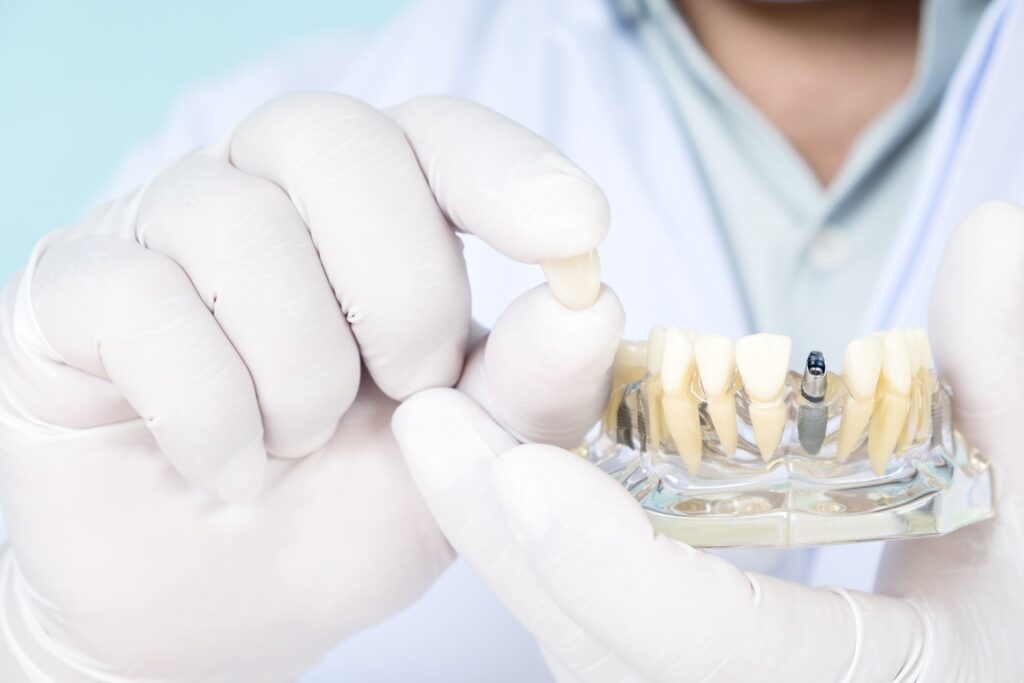
Did you know that according to the American Academy of Implant Dentistry, an estimated 5 million dental implants are placed in the U.S. annually? These restorations continue to gain popularity because they’re such a resilient and reliable way to replace missing teeth. Unlike dentures and dental bridges, they are embedded directly in your jawbone for added strength and stability.
However, that doesn’t make them the best solution for everyone. Before proceeding, you must consult your dentist to verify whether you’re a good candidate. Continue reading to learn about 3 problems that might prevent you from moving forward!
Issue #1: Bone Loss
Many patients don’t realize that their jawbone starts thinning when teeth fall out. Your roots stimulate new bone growth in your jaw every time you bite down or chew to keep it active and healthy. When one or more goes missing, you can lose up to 25% of the surrounding bone mass within the first year.
Dental implants involve surgically placing titanium rods which eventually fuse with your jawbone in a process called osseointegration. This allows them to function as sturdy standalone structures, but if your jaw is too thin, you might not complete this stage of recovery successfully. Thankfully, in some cases, a bone graft procedure can potentially bulk it up enough to continue with your elected treatment once you’ve healed.
Issue #2: Poor Dental Health
Although these prosthetics can’t get cavities, you must still demonstrate a commitment to oral hygiene to be considered a good candidate. Your gums and any remaining teeth are still vulnerable to common problems like cavities and periodontal disease, so you’ll need to keep your mouth clean to safeguard your smile.
This is especially true after your surgery because bacteria in your mouth can infect the implant site, or you could develop a progressive form of gum disease called peri-implantitis, which is the number one leading cause of failure. If your dentist finds signs of tooth decay or other issues during your initial consultation, they’ll work with you to clear those up first before proceeding.
Issue #3: Other Medical Concerns
Because getting dental implants involves oral surgery, your provider needs to confirm that your body can safely withstand the procedure before approving it. After all, they wouldn’t want to provide a beautiful new replacement tooth at the cost of your overall health.
For example, diabetes can impact your body’s ability to heal after your treatment and also is associated with a higher risk of gum disease, meaning failure is more likely. Other medications and conditions, like cancer, blood clotting disorders, and autoimmune diseases might also negatively affect your body’s ability to successfully undergo surgery and heal sufficiently afterward.
If you’re unsure whether you can safely get dental implants, the best way to find out is to contact your dentist to schedule a consultation!
Meet the Author
Dr. Harvey Mahler has 30+ years of experience helping families near Chicago build and maintain happy, healthy smiles. He earned his dental degree from the Georgetown University School of Dentistry, and is affiliated with several prestigious organizations, including the American Dental Association. Today, he offers a complete menu of services at one convenient location, including dental implants. He partners with the best local surgeons to ensure accurate placement, then provides a resilient restoration designed to look and feel lifelike. You can start the journey to rebuilding your grin by requesting an appointment on the website or by calling (312) 263-5262.
